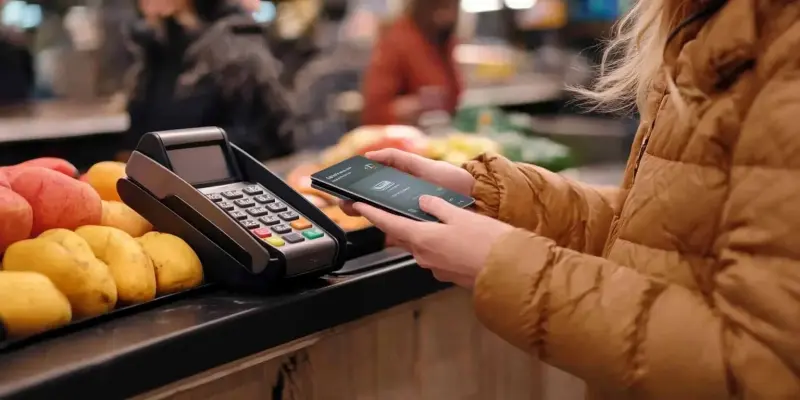In recent years, Egypt has shown an impressive inclination towards adopting digital payment systems, moving closer to becoming a predominantly cashless society. The rapid increase in smartphone usage and internet access across the country is fostering a shift from traditional cash transactions to more sophisticated, digital alternatives. This trend is redefining the financial landscape of Egypt, with major players like Fawry and Vodafone Cash taking the lead in promoting e-wallets. Additionally, the introduction of Apple Pay and the anticipated launch of Google Wallet by 2025 signal a robust transformation in how Egyptians manage their financial transactions.
Rise of Digital Payment Systems
Digital applications that store payment information, known as e-wallets, are steadily becoming an integral part of Egyptian commerce. E-wallets allow users to make purchases and handle transactions using their smartphones, offering convenience and efficiency unprecedented in cash dealings. With the launch of Apple Pay in Egypt, citizens now have access to contactless payments in stores, online transactions, and app integrations. Major Egyptian banks like Banque Misr, National Bank of Egypt, and Commercial International Bank have seamlessly integrated with Apple Pay, which charges a nominal fee of 0.15% per transaction.
The rise of contactless and cashless transactions has witnessed notable support from local platforms such as Fawry and Vodafone Cash. These platforms provide a variety of services, from utility bill payments to peer-to-peer money transfers and retail purchases. This fundamental shift is being welcomed by consumers who appreciate the added security and convenience. Users are gradually moving away from cash-heavy transactions, aided by incentives and discounts provided by these e-wallet services.
Apple Pay’s Integration and Features
Apple Pay’s debut in Egypt marked a significant milestone in the country’s drive towards modernizing its financial systems. The platform offers a range of user-friendly features, including encrypted payment information, biometric authentication, and transaction tracking. Furthermore, Apple Pay’s integration with major financial institutions makes it an attractive option for many Egyptians. The seamless blending of security and convenience that Apple Pay offers has seen it quickly gain popularity among users.
One of Apple Pay’s compelling offers is the ability to integrate with mobile apps and support online purchases. This provides users a unified platform to manage all their transactions. The lack of additional bank charges for using Apple Pay can further encourage more users to opt for this digital payment method. Through this service, Apple continues to demonstrate its commitment to enhancing the customer experience by providing a secure, efficient, and seamless payment solution.
The Upcoming Launch of Google Wallet
Set to launch in 2025, Google Wallet is poised to further invigorate Egypt’s digital payment ecosystem. As a competitor to Apple Pay, Google Wallet will bring its distinct set of features and services that are likely to appeal to a broad range of users. Promising the storage of multiple payment methods and the facilitation of peer-to-peer payments, Google Wallet is expected to integrate smoothly with various Google services, offering a comprehensive solution without additional fees. This can significantly impact the digital payment landscape, further minimizing the dependency on cash transactions.
With the entry of Google Wallet, Egyptians can anticipate a more versatile and comprehensive payment experience. The potential to store loyalty cards, tickets, and even identification documents within the Google Wallet app is a feature that is likely to resonate well with many users seeking consolidation of their digital footprint. The interoperability and ease of use that Google Wallet promises are expected to garner a welcoming reception from tech-savvy consumers and businesses alike.
The Role of the Central Bank of Egypt
The Central Bank of Egypt (CBE) has been pivotal in facilitating the nation’s shift towards digital payments. By issuing regulations in 2023 for payment card tokenization on mobile apps, the CBE aims to simplify and secure digital transactions. This step allows digital cards to process contactless payments within mobile wallets. The CBE plans to fully implement its card tokenization system by the first quarter of 2025, a move that is anticipated to spur widespread adoption of digital payment methods. This groundwork has already been laid with the launch of mobile applications and Apple Pay featuring this technology.
Such regulatory support from authoritative financial bodies underscores the long-term commitment to adopting cashless solutions in Egypt. The initiative introduces a secure framework for technological advancements in the financial sector. Consumers can operate with increased confidence, knowing that their digital transactions are regulated and protected by the CBE’s comprehensive guidelines and innovations.
Future Prospects
In recent years, Egypt has been making significant strides towards adopting digital payment systems, aiming to become a primarily cashless society. This progress is largely due to the rapid rise in smartphone usage and increased internet access throughout the country, facilitating a move from traditional cash transactions to more advanced digital alternatives. This shift is transforming Egypt’s financial landscape, with key players such as Fawry and Vodafone Cash leading the way in promoting e-wallets. Furthermore, the arrival of Apple Pay and the expected launch of Google Wallet by 2025 highlight a substantial shift in how Egyptians handle financial dealings. This development also reflects a broader global trend, as more nations recognize the benefits of digital payment systems. In addition, the Egyptian government has been supportive, offering policy incentives and infrastructural improvements to encourage the adoption of these modern systems. Overall, Egypt’s journey towards becoming a cashless society is progressing rapidly, marking a pivotal moment in its financial evolution.

